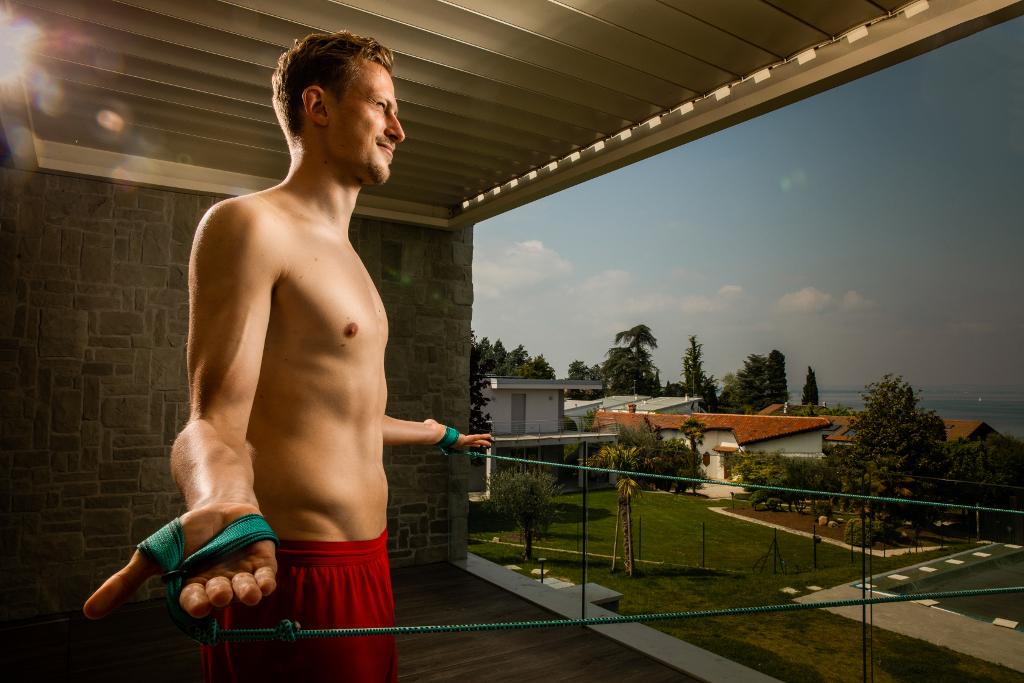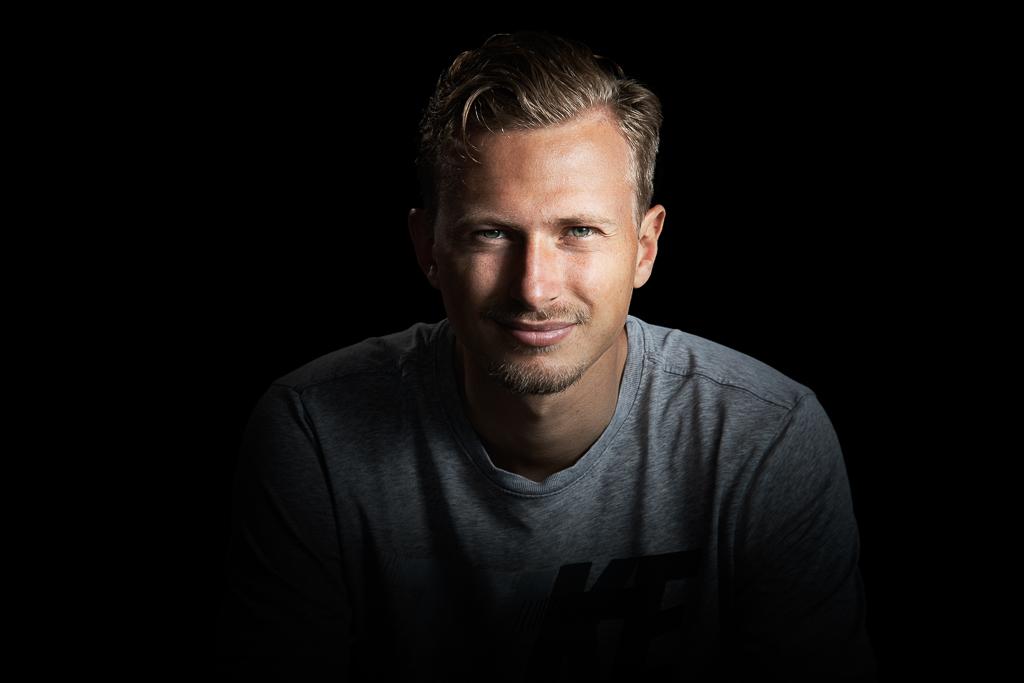Don’t touch my little Tony
Antonín Barák
soccer
Three hours. I couldn’t give my girlfriend three stupid hours a day.
Not even for one day. Not one cinema visit or one dinner.
I could not afford one moment where I’d stop focusing on the one thing that consumed me; the one area where I had put all of my effort.
Not one single day in almost five months have I stepped off of this path. Ten hours a day, I was at the stadium practicing. Again and again, I flexed all the muscles in my body while my hands worked against the stronger or weaker resistance bands. Sometimes it was 11 hours, sometimes even 14.
Maybe you think I’m lying. Even my friends sometimes don’t believe me and I myself find it incredible that I was able to endure this, but I simply shut down the outside world and decided that I would make it. It was an extreme approach. I became a maniac. A maniac with one specific goal.

Every one of those days. Every hour. Every exercise, every rep was completed with that goal in mind. All of this time I kept a series of images in front of my eyes to drive me to greater heights. A movie in which I had the lead role. A movie made from scenes with me on top; when I stood on the pitch in the biggest football games and decided the result of the match with my performance.
You see, limits don’t exist for me. A person can do whatever they dream. If they sacrifice everything they can, there will be a reward. What you give, you get back. That’s what I believe.
I believed that throughout those five months when I flexed specific muscles in correct positions again and again to make them stronger and allow me to return to big-time football in sufficient condition.
I knew there was no other way. I couldn’t budge. I couldn’t take breaks.
If I did, I’d betray my dreams. I’d betray my family, my girlfriend and Paulina Novotná, an exceptional compensatory exercise specialist and my guardian angel who went through all of this with me.
I’d betray myself. My warrior’s heart. My belief is that I’m the best and it’s up to me to show it to the rest of the world.
Sometimes, a big obstacle would stop me, but it was still just an obstacle; one of many that tried to halt my journey and failed.

Vstoupit do Klubu
Inspirativní příběhy vyprávěné sportovními osobnostmi. Ke čtení nebo v audiu namluvené špičkovými herci. K tomu rozhovorový podcast. Každý týden něco nového.
Did you like the story? Please share it.



